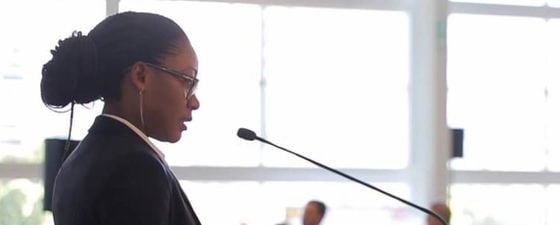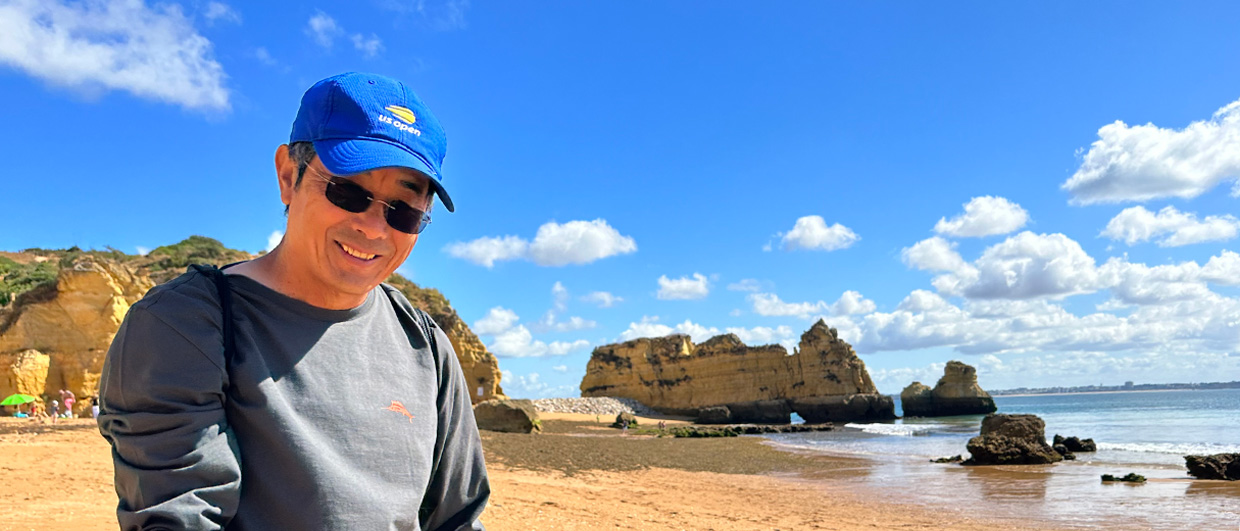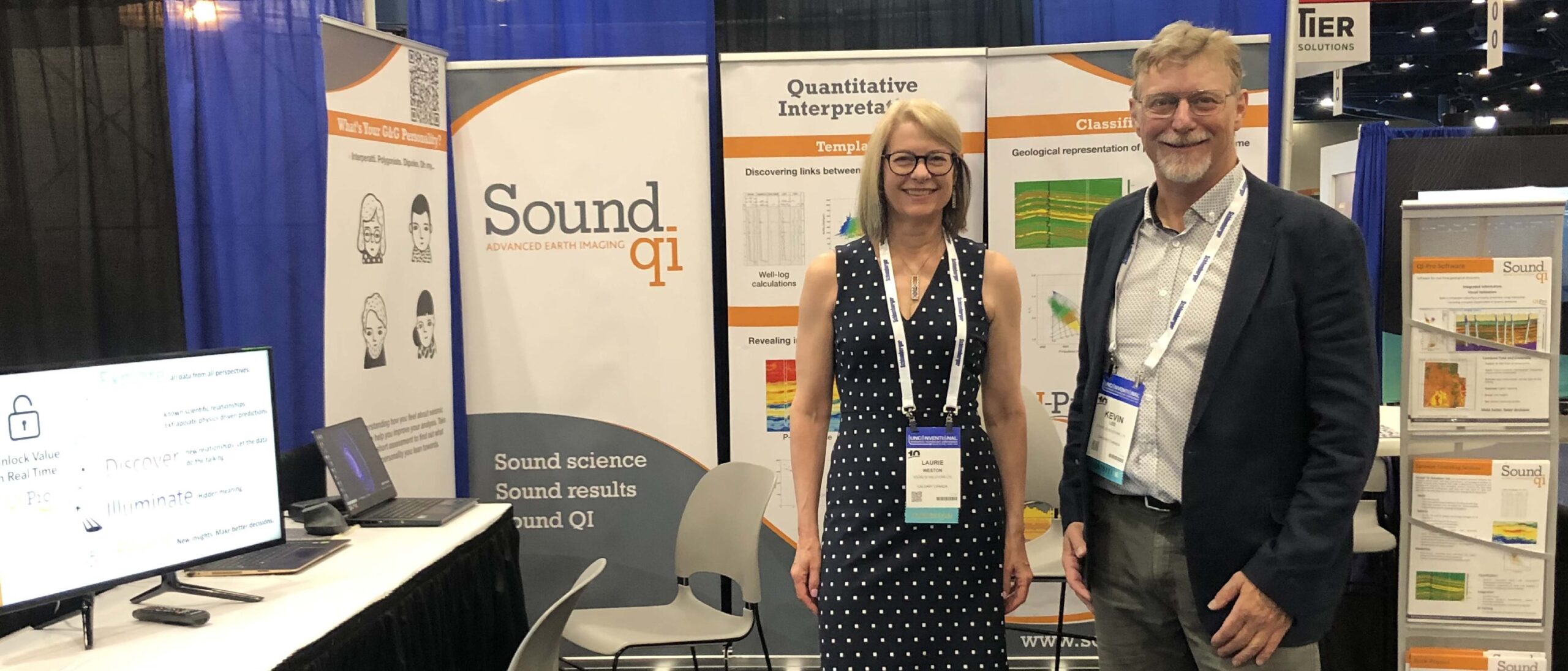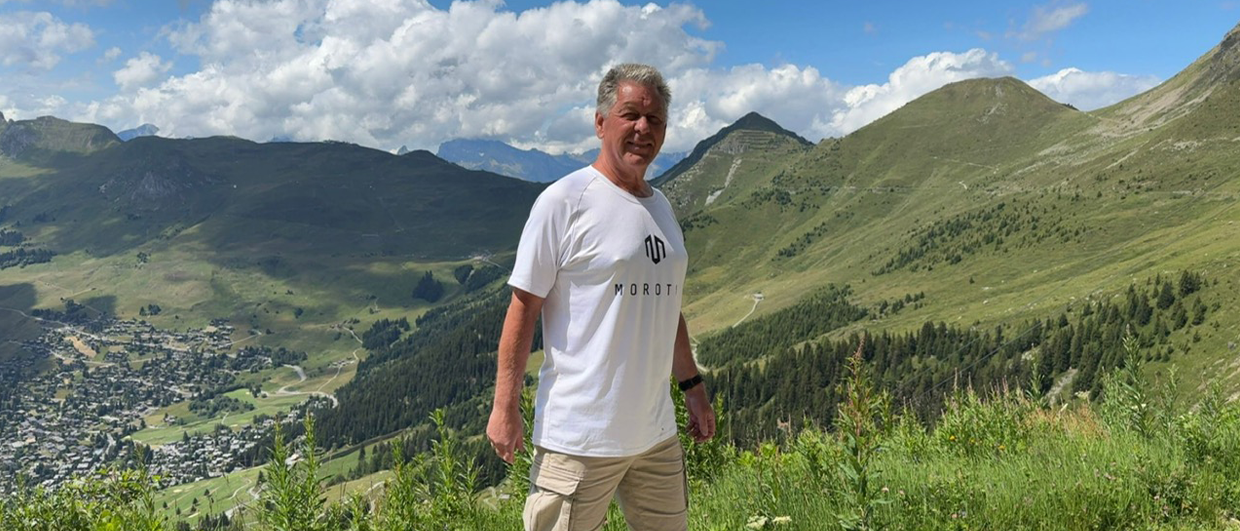GEO ExPro interviewed Mme Teresa Goma, the Director General of Hydrocarbons for the Republic of Congo, and discussed her thoughts on successful hydrocarbon exploration in the Republic of Congo.
Mme Goma making a presentation at Africa Oil Week 2018. Teresa Goma has 18 years experience in the oil and gas industry, from both the services sector and with an operating company, Oryx Petroleum. © Africa Oil Week.
Mme Teresa Goma is the Director General of Hydrocarbons for the Republic of Congo, sub-Saharan Africa’s third-largest oil producer. She is responsible for the 2018–2019 Congo Licence Round Phase II, which involves both on and offshore areas. These include the underexplored onshore Cuvette Basin and the Coastal Basin, which covers onshore and shallow water blocks, as well as exciting deep and ultra-deepwater blocks.
In this Q&A feature for GEO ExPro Vol. 16, No. 3, we discussed with Mme Teresa her thoughts on the licensing round so far and what she thinks will make for a successful Phase II and also the success of future hydrocarbon exploration in the Republic of Congo.
Where do you think is the best potential for exploration in the Republic of Congo?
Both basins are very prospective, the only difference is that the Coastal Basin is better known than the Cuvette Basin. Our very deep and ultra-deep offshore areas are underexplored; the potential there is still at its maximum.
This is Phase II of the Congo Licence round; how successful was Phase I?
Three blocks were awarded in Phase I: Marine XX, Marine XXI and Marine XXVII. Although two of the licensees, Total and Perenco, are already in Congo, we have had the opportunity to have a new actor, the American company Kosmos, who will operate our ultra-deepest block. We are happy with the Phase I licence round results.
How did you decide which blocks were to be offered in each phase?
Phase I was primarily deepwater blocks. Actually, most of the blocks offered but not awarded under the 1st round were put back into the Round II. The criterion is simple: we have a map of our basins and all the free blocks are available for bidding.
Can you tell me about SNPC’s regional 3D seismic project and your plans to encourage companies to support it?
Our partner PGS and the Congolese national oil company SNPC are currently working together, with the support of the Ministry of Hydrocarbons, to determine the best way to encourage companies to participate in this very productive, cost-saving project, which will involve a new broadband depth-imaged 3D survey. I can’t tell you more about it for now, as we are considering a few leads, but I will be happy to come back and share with you the final decision.
How many companies have shown interest so far and when does this phase end?
Over 30 companies have shown interest so far; we are very excited by this enthusiasm. There are currently several bid rounds ongoing in the region and the world, but we really hope that our current and future partners will see the benefits of coming to Congo. We are, of course, very pleased to talk to potential partners and always available to clarify any concerns or questions they might have. The bid round deadline is June 30th; we hope that by Q4 2019, we will be able to announce the results.
What is your own role in the Licence Round process?
As the Director General of Hydrocarbons, I make the final calls on the entire bid round process, timing, data to be made available. I make sure that we all comply with the laws and regulations. And I try to assure our partners that Congo is a very welcoming country, where doing business, especially investing in the oil and gas industry, is always a win-win deal.
What are your hopes for this round?
I would like to diversify our oil and gas family, with small, medium and large size companies and new nationalities. As I said previously, we are happy to have a new operator from the USA in the country and my hope is having additional new nationalities. Diversity is one of the keys to success.





